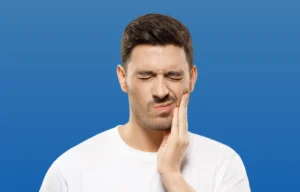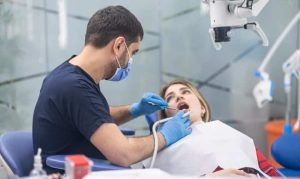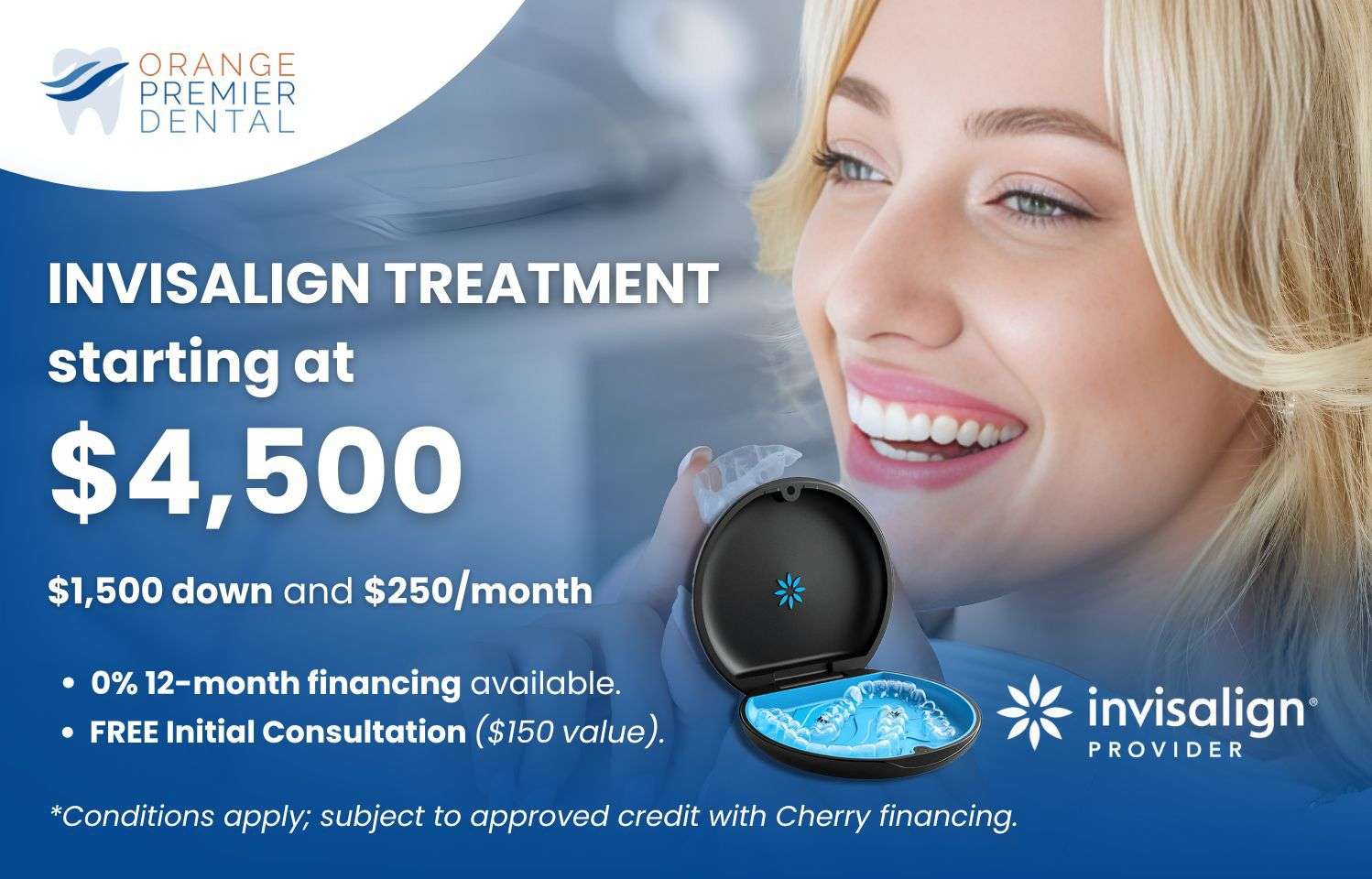
Imagine you are rushing to do something important at work, or having a nice family dinner, and suddenly a sharp pain strikes in your mouth. Yes, it does send shivers down the spine. Such situations are a total mood ruiner, and these dental emergencies come up when you least expect them. However, the good news is that most of them can be prevented with simple everyday habits.
Whether it is about teaching your kids to take care of their teeth or finding ways to protect your smile, we have got you covered. This blog will explain to you emergency dental care tips that will help you avoid such stressful situations.
Understanding Common Dental Emergencies
It’s important to know what dental emergencies are. A dental emergency can occur anytime, often resulting in intense pain, bleeding, or loss of a tooth. Some of the most common dental emergencies include:
- Toothaches: A constant or throbbing pain in your teeth, often caused by cavities or gum infection.
- Chipped or Broken Teeth: An accident or a simple bite of something hard can lead to cracked or broken teeth.
- Knocked-out Teeth: A fall or a strong blow to the face can cause a tooth to be completely knocked out.
- Lost Fillings or Crowns: These can fall out at the most inconvenient times, often leading to sensitivity and discomfort.
- Abscesses or Infections: Painful swellings in the gums are often a sign of infection that can lead to serious complications if not treated promptly.
While these emergencies can be alarming, many of them are preventable with the right care and precautions.
Daily Habits to Prevent Dental Emergencies
Here are some daily habits that can help you and your family avoid painful situations:
1. Brush and Floss Regularly
Although it may seem simple, one of the best ways to prevent dental emergencies is to brush and floss your teeth every day. Cavities caused by plaque accumulation can result in infections or toothaches if left untreated. To get food particles out of the spaces between your teeth, make sure to floss every day and brush twice a day with fluoride toothpaste.
2. Avoid Hard Foods
Chewing on ice, hard candies, or other tough foods can cause serious damage to your teeth, potentially leading to fractures or breaks. If you can’t resist a crunchy snack, be careful and chew with your back teeth, which are stronger. And for kids, make sure they avoid sticky or hard foods that could cause unexpected tooth damage.
3. Wear a Mouthguard for Sports
Sports accidents are one of the leading causes of dental emergencies, especially for children and teens. A mouthguard is a simple yet effective way to protect teeth during contact sports like football, hockey, or basketball. It can prevent tooth loss and minimize the risk of damage from sudden impacts. For kids, a custom-fitted mouthguard is an investment worth making.
4. Limit Sugary Snacks and Drinks
Sugary foods and drinks are a primary culprit when it comes to cavities. When sugar interacts with the bacteria in your mouth, it produces acid that erodes tooth enamel. Over time, this can lead to cavities, which, if left untreated, may result in painful dental emergencies. Limiting sugary snacks and opting for water or sugar-free drinks will help protect your teeth from this destructive process.
5. Stay Hydrated
Drinking plenty of water throughout the day helps rinse away food particles and bacteria that can cause oral health problems. Water is also essential for producing saliva, which helps neutralize acids in the mouth and keep your gums healthy. Encourage your kids to drink water throughout the day to stay hydrated and maintain their oral health.

The Importance of Regular Dental Checkups
Even if you follow the best home care habits, routine visits to your dentist are still essential for preventing dental emergencies. Regular checkups allow your dentist to identify potential problems before they become major issues. During a checkup, your dentist will:
- Check for cavities or signs of gum disease.
- Ensure fillings and crowns are intact.
- Examine the alignment of your teeth and bite.
- Clean your teeth to remove plaque and tartar buildup.
Regular visits are essential for preventing dental emergencies before they even start. Kids should also visit the dentist regularly for checkups and cleanings. Early intervention can prevent cavities, tooth decay, and other issues that could lead to emergency situations down the line.
How to Handle Minor Issues Before They Become Emergencies
Sometimes, small dental problems can escalate into bigger emergencies if not addressed promptly. Here are some quick fixes for minor issues:
- Toothaches:
- Rinse the mouth with warm saltwater to reduce swelling.
- Apply a cold compress to the outside of the cheek to alleviate pain.
- Use over-the-counter pain relievers temporarily.
- Visit a dentist as soon as possible to address the underlying cause.
- Chipped Teeth:
- Rinse your mouth with warm water and apply a cold compress to reduce swelling.
- If the tooth is jagged, cover the sharp edges with wax or sugarless gum.
- For kids, use a temporary dental adhesive available at most drugstores.
- Visit the dentist promptly for a permanent fix.
- Lost Fillings or Crowns:
- Visit your dentist quickly to prevent infection.
- In the meantime, apply a small piece of dental cement over the exposed area as a temporary measure.
- For children, make sure to get them to the dentist as soon as possible.
Emergency Preparedness: What to Do When an Emergency Strikes
Even with the best prevention, dental emergencies can still occur. Here’s how to respond when they do:
- For Knocked-Out Teeth: If a tooth is knocked out, handle it by the crown (not the root) and rinse it gently with water. Get to the dentist immediately for the best chance of saving the tooth.
- For Abscesses or Infections: If you experience swelling, pain, or pus around a tooth, you may have an abscess. Seek immediate medical attention to prevent the infection from spreading.
Conclusion
Avoiding dental emergencies doesn’t have to be difficult. You can safeguard your teeth and steer clear of unpleasant surprises by adopting a few easy routines. Keep in mind that routine dental exams are essential for preventing possible problems, and being ready for minor crises can help you avoid discomfort and save time.
Always have emergency dental care advice on hand, and don’t be afraid to get in touch with Orange Premier Dental as soon as possible. Make sure your children abide by these guidelines and schedule frequent dental checkups. You can maintain the safety and health of your smile for many years to come with a little work.
Frequently Asked Questions
Have you got some questions for us? We’d be happy to answer.
1. What is called a dental emergency?
A dental emergency means you require urgent assistance for severe pain in your mouth, which can be a result of several reasons.
2. Is tooth pain always an emergency?
No, toothaches are not always an emergency and can be treated with over-the-counter medication and remedies.
3. Is it easy to prevent dental emergencies?
Yes, by following key prevention tips and healthy habits, you can prevent dental emergencies.

Dr. Shierf Elgamal is the lead dentist at Orange Premier Dental in Orange County. A graduate of Loma Linda University School of Dentistry (2013), he has extensive experience across all areas of general dentistry and is dedicated to providing patients with honest, straightforward care. Over the years, Dr. Elgamal has worked in multiple practices, gaining valuable skills that he now brings to his own clinic.







